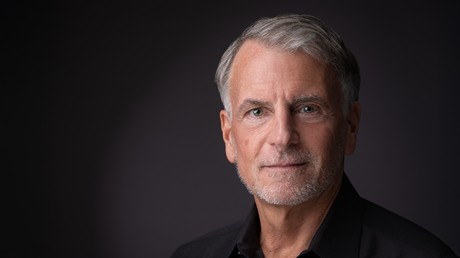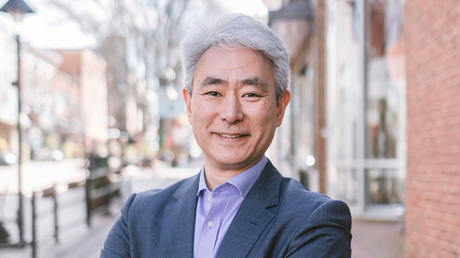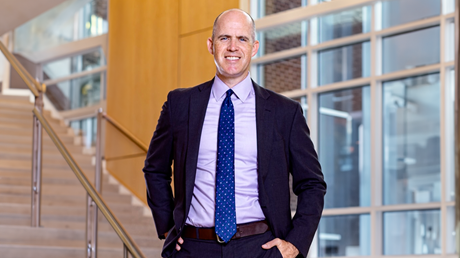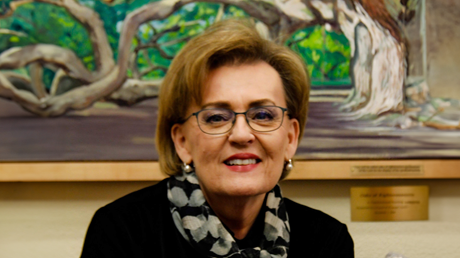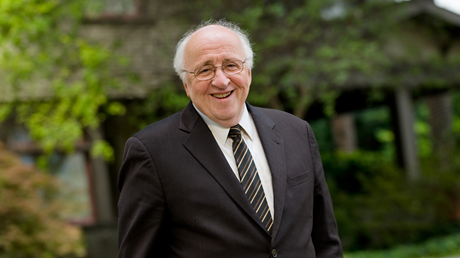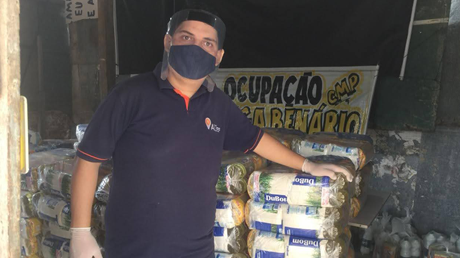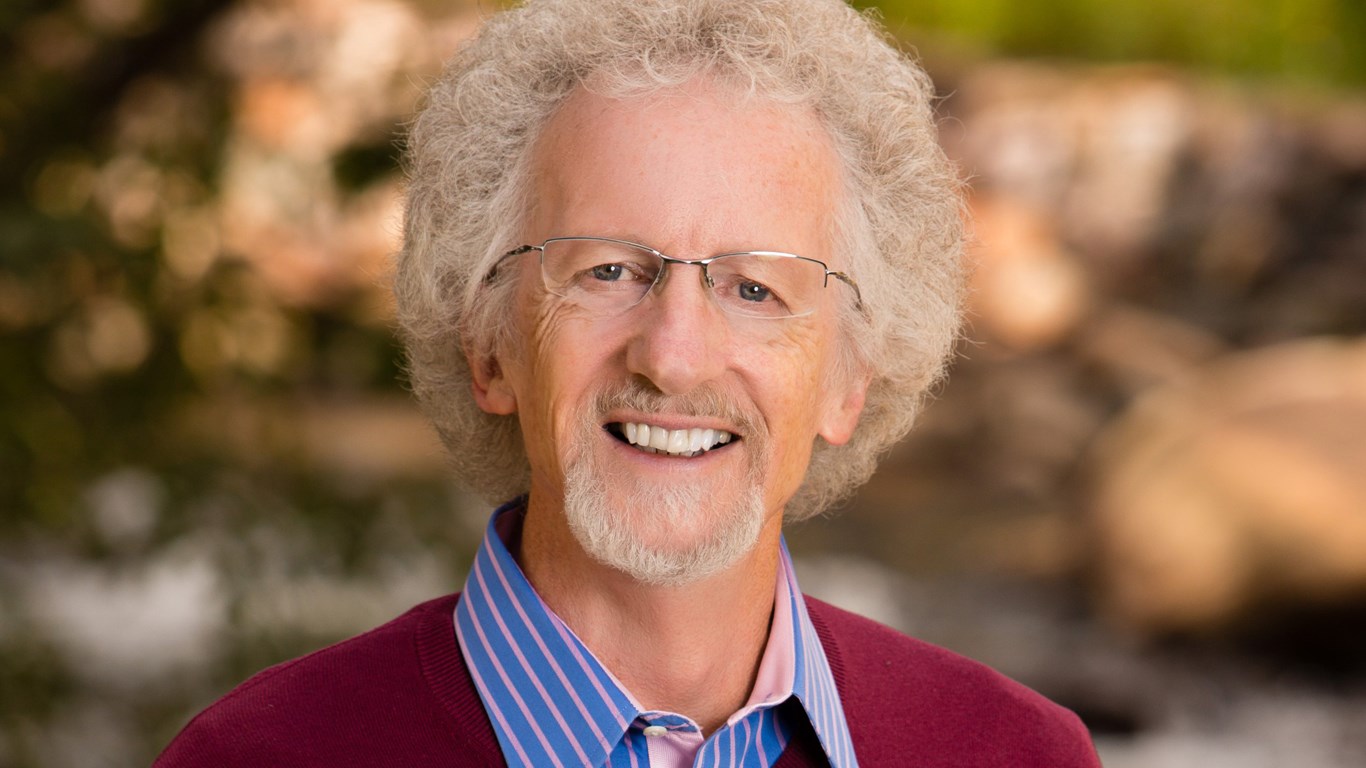
Will you help encourage and connect the church?
Give NowWill you help encourage and connect the church?
Give NowWhen Philip Yancey began working for Campus Life magazine in 1971, he couldn’t have imagined how CT would become a kind of home for him, a place where he would be nurtured as a writer and theologian, critically engage his faith, and recover from a toxic church background. But for Philip, this is exactly what CT has been for him throughout his life—a “dependable friend.”
Philip started working for Campus Life magazine in 1971 while attending Wheaton College for graduate school. In 1975, Harold Myra became the publisher of Christianity Today magazine. Myra made significant changes to breathe new life into the ministry—one of which was acquiring Campus Life.
Soon, Philip started writing articles for Christianity Today, a springboard for what would become some of his most well-known books.
“I liked having the freedom to write longer, more complicated articles,” explained Yancey. “I would often take that material and work it into books. For example, The Bible Jesus Read is a collection of articles from CT and What’s So Amazing About Grace grew out of a series that I wrote on forgiveness.”
Philip attributes the start of his career—like many others—to CT. It was CT’s platform that helped launch him as an author, something he continues to see happening for CT writers today.
“There are people I could name who are appearing in the magazine now, but 10 years from now you’ll be reading their books,” claimed Philip. “In addition to nourishing the reader, CT is also nourishing writers who will perpetuate that pattern over the next generations.”
Yet CT was much more than a starting point for his best ideas. CT’s emphasis on the arts encouraged him to grow creatively. Yancey recalled how he wrote a back page column for CT for 26 years. While the column sometimes covered more hard-hitting topics like politics, he was also given free rein to write on more artistic and contemplative topics as well. Yancey loves watching how CT continues this kind of work today, especially with products like Ekstasis magazine.
“Christianity Today still gives prominence to book reviews, whereas a lot of major newspapers and magazines have cut out reviews completely,” said Yancey. “Ekstasis magazine is an example of CT’s commitment to the arts. It’s got a lot going for it.”
In recent years, it is CT’s emphasis on the global church that has inspired and encouraged Philip. As an avid traveler, who has visited over 88 countries seeing the kingdom of God in every iteration, he finds hope in how many churches are flourishing around the world.
In fact, much of Philip’s writing grew out of his experiences in places like prisons and leprosy colonies—places where it should be hard to have hope. What Philip has found is that there is indeed hope, and it often comes from the love and kindness of Christian missionaries, the only people who are willing to care for people in such places.
Philip noted that wherever he has gone in the world where there have been missionaries, there is a trail of orphanages, clinics, and hospitals. People are fighting sexual trafficking and digging wells. In these ways, out of the spotlight, Philip has seen God’s work being done. We are here, as Paul says, “to represent the God of all comfort, the father of compassion” (2 Corinthians 1:3-4). Philip has spent his life seeing how that happens and writing about it for others.
“I am full of hope,” he declares. “My faith is a big part of that. If you didn’t have faith, how could you find hope in the darkness of the world?”
Yancey acknowledges that it’s hard to financially justify the expenditures on the global church because a lot of people just aren’t interested in reading about it. However, CT is shining a light on the global church, and once people understand these stories, Philip believes that they will begin to see it differently.
“In recent years, the global emphasis is one of the best things about CT,” said Yancey. “I went through the recent Globe Issue and read every word of it. It’s so inspiring. I’ve been to many of the places they write about, and I appreciate the emphasis they give to the global church. If you get discouraged about the church in America, go to the church in other countries and you will find life.”
CT’s emphasis on the global church helps Philip see the kingdom of God at work—something he thinks we need more than ever.
“I feel less alone because of CT. It reminds me that all over the world God's kingdom is bringing hope and compassion in practical ways—stories that are often overlooked by mainstream media. In our divisive times, we badly need CT's balanced, uplifting voice.”
When it comes to the church in America, Philip appreciates that though the culture in America has changed significantly since he began working for CT 45 years ago, Christianity Today has remained true to its mission. While the evangelical culture has become much more political, CT has stayed true to what it was created to do.
“When I was growing up Evangelicals were not defined by politics, it wasn’t even talked about,” said Yancey. “They were defined by behavior and thought, belief and faith. Jesus doesn’t talk much about politics. And I believe CT reflects that.”
For Philip, CT has always stood for social justice, regularly publishing articles about poverty, racism, and global issues. That’s how Yancey wishes evangelicals were known, as an unpredictable entity who are not bound to Republican or Democratic parties, but known as followers of Jesus. That’s why Philip is thankful for the work CT’s Big Tent initiative is doing to bridge these political, socioeconomic, and racial divides in our country.
“The fact that CT is not automatically in lockstep with right-wing Republican politics is a good thing because we should not make our political decisions based on anything other than what the Bible teaches, and no political party reflects that perfectly,” declared Yancey. “Each party has some things to contribute, and we need to pick and choose based on what God values and what Jesus taught.”
Yancey has seen a lot of changes through the almost fifty years he’s been connected with CT. He has seen changes in our culture and our world, but some of the biggest changes for Philip have taken place within his own life.
For example, CT helped Yancey work through a toxic church background, an experience Yancey wrote about in his memoir, Where the Light Fell. Writing allowed him to sort through what was worth keeping, what needed to be changed, and what needed to be discarded. But another way Philip was able to do that was through conversations at Christianity Today.
“CT became the place where I would do that out loud, among faithful friends,” recalled Yancey. “I really feel blessed looking back because it gave me a way to deconstruct and reconstruct my faith. We didn’t use those words back then, but that is what was going on.”
Recently, Philip was diagnosed with Parkinson’s disease. Even with his new diagnosis, he still finds hope in the world, especially in how God continues to work through the church.
“I really have no trouble with hope, my faith is strong,” said Yancey. “I’ve spent my life as a journalist, profiling people who have overcome things much worse than what I face. I’ve learned that faith and community were a part of making that happen.”
At this point, Parkinson’s is more of an irritation than an enemy for Yancey. There are things in his life that are harder to do, and his body doesn’t always work the way he wants it to, but it is out of his control, so he trusts God with the rest.
“Jesus taught us to pray that God’s will be done on earth as it is in Heaven, and at this point, you would have to say that prayer hasn’t fully been answered,” said Yancey.
So, he continues to pray, and long for God’s Kingdom to come to earth.
Caitlin Edwards is marketing and sales manager at Christianity Today.


